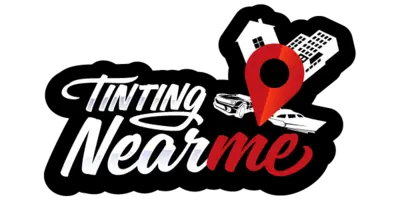How to Get Medical Exemption for Window Tint in West Virginia in 2024
Did you know that in West Virginia, it’s possible to get a medical exemption for window tint? You’d need to obtain a certification from a licensed optometrist or physician, stating the need for darker windows due to a specific medical condition. However, there’s a bit more to the process, and it’s crucial to ensure you’re fully compliant with all regulations. So, what steps do you need to take, and what are the potential pitfalls to avoid? Let’s explore this further.
The information on myeyerx.net isn’t legal advice; consider it a starting point. Always verify with local and state authorities, as the final decision rests with you. We are not lawyers. For specific legal guidance, we can refer you to legal experts. Remember, knowledge of both state and local laws is essential, and even law enforcement might not be fully updated. We aim for accuracy but advise double-checking for the latest regulations.
Key Takeaways
Key Takeaways
Key Takeaways
- Medical conditions such as glaucoma, photophobia, or albinism can qualify for a window tint exemption in West Virginia.
- This exemption requires a written statement from a physician or optometrist, detailing the medical necessity for the tint.
- Once granted, the exemption typically lasts for a year, and must be renewed annually with fresh certification.
Need Help? Our Doctors Are Here For You!
MyEyeRx was established with the objective of simplifying the complex landscape of state regulations pertaining to legal medical exemptions for window tinting. For individuals seeking to navigate these regulations without resorting to a do-it-yourself approach, we offer a streamlined solution. Our team includes qualified medical professionals who are available to conduct consultations via Zoom. These sessions are designed to assess your eligibility for a medical exemption, ensuring a personalized and efficient process for acquiring the necessary documentation.
Understanding West Virginia’s Tint Laws
Let’s delve into understanding West Virginia’s tint laws, which require a medical necessity exemption certification from an optometrist or physician if you need to tint your vehicle windows. This certification is essential to ensure your vehicle’s compliance with the state’s regulations.
West Virginia’s window tint laws are specific about tint darkness and reflectiveness. Your window tints should not be more than 20% reflective. If not, they might not meet the state’s standards. Additionally, you’re not allowed to use tint colors such as red, yellow, or amber on your vehicle windows.
If you have tints on the side windows behind the driver’s seat, your vehicle must be equipped with side mirrors. This rule is for safety reasons, ensuring you have adequate visibility when on the road.
The film manufacturer also plays a crucial role in this process. They’re required to certify the tint and affix a label of compliance. This label is proof that your window tints have met all the necessary requirements and exemptions.
Medical Conditions Eligible for Exemption
While adhering to West Virginia’s tint laws is crucial, it’s worth noting that certain medical conditions can qualify you for a window tint exemption. If you suffer from Glaucoma, photophobia, albinism, or any condition requiring protection from sunlight, you might be eligible. Medical professionals may grant a total exemption for a darker tint based on these specific medical conditions.
To get this exemption, you’ll need a written statement from your physician detailing your medical need. This statement is crucial for obtaining a certificate of exemption. Here’s a simple breakdown:
Medical Condition | Requirement | Exemption Duration |
Glaucoma | Written statement from physician | 1 year |
Photophobia | Written statement from physician | 1 year |
Albinism | Written statement from physician | 1 year |
Special medical treatments | Written statement from physician | 1 year |
Note that your certificate of exemption is typically valid for one year. After this, you’ll need a renewal. So, if you have a qualifying condition, consult with your medical professional to take the necessary steps towards getting your window tint exemption.
Securing Your Window Tint Exemption
Once you’ve obtained a written statement from your physician or optometrist, it’s crucial to take the necessary steps to secure your window tint exemption in West Virginia. This statement should clarify the medical necessity for a darker shade of window tint due to a specific medical condition that you have.
You must then submit this required paperwork to the relevant authorities. It’s important to remember that this exemption needs to be renewed annually. Each year, a new certification from a qualified medical professional is necessary to continue benefiting from this exemption.
Once granted the exemption, ensure to keep the paperwork in your vehicle. This is because if you’re ever stopped by law enforcement, you’ll need to present this documentation to avoid any potential misunderstandings or issues.
Securing your window tint exemption is a relatively straightforward process. However, it requires diligence in getting the necessary medical certifications, submitting the paperwork on time, and keeping your documentation handy for any encounters with law enforcement. Properly adhering to these steps ensures that you can comfortably drive with a darker shade of window tint, as required by your medical condition.
Penalties for Non-Compliance
If you don’t comply with the window tint laws in West Virginia, you could face fines up to $200 per violation. Getting caught with illegal window tints in WEST VIRGINIA isn’t just a simple slap on the wrist. It’s important to remember that tinting laws are in place for the safety of everyone on the road.
- Your first offense might only result in a fine, but it’s considered a misdemeanor and could escalate if combined with other legal issues.
- If you continue to disobey the window tinting laws, the penalties for non-compliance increase significantly. You could face higher fines, potential license suspension, or even vehicle confiscation.
- The good news is, if you’re caught with illegal tints, promptly removing them can help mitigate the consequences.
While a medical exemption can grant you some leeway with window tinting, it doesn’t grant you immunity from all compliance. Understanding and adhering to the window tint laws in West Virginia is the best way to avoid these penalties and potential legal issues. So, stay on the right side of the law – it’s easier, cheaper, and less stressful in the long run.

Don't want the hassle? Let us take care of your exemption for you!
MyEyeRx.net is here to help you streamlines the process of obtaining a medical exemption for window tint online. Explore our services to easily transform your window tint from non-compliant to legally approved!
Because of the differences in each of the 50 states, we’ve crafted distinct guides for securing window tint medical exemptions for each of the individual states.

Toriano (Tory) Dewberry
Become one of the many satisfied clients Toriano has assisted in obtaining a medical exemption without stepping out of their homes. Click the button below to begin and discover if you're eligible for a medical exemption.

Toriano (Tory) Dewberry
Become one of the many satisfied clients Toriano has assisted in obtaining a medical exemption without stepping out of their homes. Click the button below to begin and discover if you're eligible for a medical exemption.
Frequently Asked Questions (FAQ'S)
What Medical Conditions Qualify for Window Tint in Wv?
If you’ve got eye sensitivity, skin disorders or light sensitivity, you might qualify for tinting benefits in WV. You’ll need a physician recommendation and medical documentation stating your condition. This starts the exemption process. Keep in mind, there are tinting restrictions and limitations, even with an exemption. It’s crucial to understand the legal considerations. Remember, this isn’t about dodging laws, but accommodating your health needs.
What Is the Darkest Legal Tint in Wv?
In West Virginia, the darkest legal tint varies by vehicle type. For cars, it’s 25%. Commercial vehicles can go up to 35%, while SUVs and vans can have a 50% tint. Your windshield must allow at least 70% light transmission. Remember, excessive tinting can affect vehicle safety and resale value, and it’s important to follow local tint regulations. Consider the cost, durability, installation process, and seasonal benefits of tinting before deciding on the tint percentage.
How Do You Get Around Tint Laws?
To get around tint laws, consider tinting alternatives like clear UV films. Understand the legal implications though. Exceeding tint limits without a medical exemption might lead to enforcement issues. Weigh the tinting benefits, such as privacy and health implications, against potential drawbacks like reduced visibility. Remember, law exceptions aren’t guaranteed. Tinting materials vary in cost, so budget accordingly. Ultimately, respect the intent behind these laws: ensuring safety on the road.
What Medical Conditions Qualify for Window Tint in Ny?
In the city that never sleeps, NY tinting regulations are strict, but exceptions exist. If you’re plagued by light sensitivity due to conditions like photophobia or albinism, you’re in luck. Legal precedents recognize these as qualifying conditions for tinting benefits. You’ll need medical documentation to prove it. It’s not just about style, it’s health implications. Check NY state laws, explore window tint alternatives, and understand the relationship between tinting and vision.

MyeyeRx.net
Ensuring your tint is not just about style, but legality and safety.
Let us guide you through the maze of state regulations to legal clarity.

Conclusion
Securing a medical exemption for window tint in West Virginia isn’t a walk in the park. You’ll need proper certification, proper conditions, and a keen understanding of the state’s tint laws. Don’t end up in hot water by skipping these steps. With the right knowledge, you can navigate this process like a pro. Always check with local authorities for the most current rules, as tint laws can change faster than a chameleon on a kaleidoscope.
Looking to find a Reputable Window Tint Company In West Virginia?
Checkout Tintingnearme.com to Find A Local Tint Shop
After learning about window tint laws, the next step is to find a trusted local window tinting shop. Tinting Near Me offers a selection of reputable shops knowledgeable in both quality tinting and legal standards, including medical exemptions.
Choose a shop from their list for expert service that meets legal requirements and enhances your vehicle’s compliance and protection.


